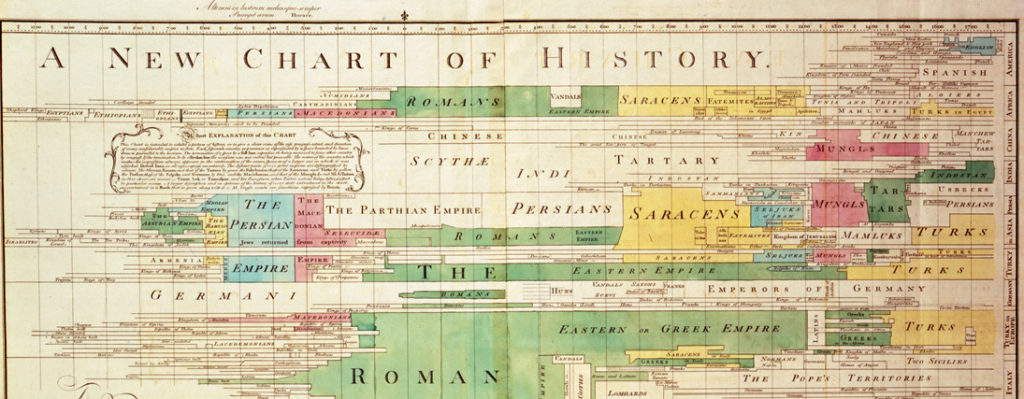
If you believe that we can’t and shouldn’t rewrite history, you are wrong. We can and we should rewrite history.
Don’t feel bad though, you’re not alone in the belief that history is stagnant and unchangeable, but this belief is wrong. History is not fortified fact that is indisputable.
Please, let me explain myself. I’m a businessman. So, let me use some examples from the business world that might bring us to a common understanding.
As a strategist, one thing that makes me great at what I do, is the way I rewrite history. In fact, as part my team’s process, we intentionally design and implement systems to rewrite history.
You see, strategy is about making sense of all the information available, both internally and externally, in order to commit and allocate resources. However, no matter how much analysis we do, there are always things we do not see or cannot understand when we make these commitments.
We do not know all things at the point of decision, so we intentionally build mechanisms to gather feedback as we allocate resources toward our commitments.
The way we rewrite history or apply new insights will change the way we see our original decision and dramatically impact future decisions.
These feedback mechanisms enable us to know more about the decisions we’ve made and their actual results versus their intended results. The insights are applied in hindsight and that hindsight changes the way we see our original decisions.
As we make commitments by allocating resources, we evaluate the impact those decisions are having and the results they are achieving. We also evaluate “why?”
Six months after implementing a strategy, we have often learned much about what will or won’t work and why. We can then, go back to our original decision and rewrite parts of it.
Don’t get me wrong; we cannot rewrite the details and decisions that have already been made. But, we can see and interpret those decisions through a new lens. What may have seemed like a brilliant decision 6 months ago, could appear to be just an okay decision three months later and turn out to be a horrendous decision a year later. Yet, if you asked us two weeks after the decision, we would tell you it was great.
Do you see how added context and insight rewrites history? Again, it doesn’t change the facts of the decision, but it changes how we talk about it and what we take away from it.
Two weeks after the decision, we talk about the decision through a lens of potential and excitement. Three months after the decision we see the decision through a lens of acceptance or even complacency. Six months after the decision we see it through a lens of frustration and a year after the decision we see it through a lens of regret.
At each point in the timeline, we have gained new insight and context and this new insight and context rewrites history, it changes the way we perceive and talk about the decision.
As a strategist, I not only believe that my effort to evaluate and rewrite history makes me good at what I do, I believe I am obligated to my clients to rewrite history as I gain insight and more context.
If we don't rewrite history, we cannot improve future decisions. This is the essence of history repeating itself.
What would be the result if we learned something about a decision made, if we gained insight and context, but did not inform and rewrite the decision for clients? I have no doubt clients would hold us accountable for continuing to talk about the plan with positivity, when the insight and context of time tell a different story.
Additionally, rewriting history with the new and current insights we have requires us to choose winners and losers. If we don’t pick one side over the other, we cannot allocate and commit resources in any sort of meaningful way.
Likewise, as a society, it’s not only good to rewrite history given the insights and context we currently have, we are obligated. This won’t change the details, but it will change the lens we see those details through. Dates, times and events don’t change, but long-term outcomes and results do as we see them in the full context of time.
And, as is the case with strategy, we have to rewrite history in a way that allows us to choose winners and losers, to choose right and wrong. If we neglect to do this, we will be unable to commit and allocate resources, unable to mobilize efforts that given all of the available information we have leads to the best possible outcomes.
How Blockbuster Rewrote History
Many people have heard how Blockbuster CEO John Antioco laughed Netflix chief Reed Hastings out of his office in 2000. Netflix had approached Blockbuster about running their online brand. Given the insight and context Blockbuster had at the time, it seemed like a bad idea.
Blockbuster was at the top of their game, dominating the market, collecting late fees and barely feeling the impact of Netflix. At the time, it didn’t make sense.
By 2004, Blockbuster and Netflix were in a price war. The decision to disregard Netflix in 2000, began to take on a different meaning. What seemed appropriate to laugh at in 2000, started to feel painful by 2004.
Then in 2007 Antioco and Hastings met during the Sundance Film Festival. During the meeting Hastings offered to buy Blockbuster’s online business. However, with seven years of added insight and context regarding the decision in 2000, Antioco proposed a merger.
Ultimately the deal never went through, but this example illustrates how the details of history may not change, but the way we think about it and talk about it may. Even what we consider to be good decisions and bad decisions will change, as history is rewritten with new insight and context.
In order to do this effectively, here are three suggestions.
FIRST, know going into your decisions that you will need to reevaluate (rewrite) them over time. Not just once or twice, but multiple times as you gain more context and insight. It’s important to build in a process for doing this and to have an idea of what you will be looking for during those evaluation periods.
SECOND, choose winners and losers or right decisions and wrong decisions. Whether an organization or a society, there are limited resources. Without choosing winners and losers, resources cannot be committed. If you want to be strategic, you have to commit and commit in a way that will create the greatest value.
THIRD, don’t let bias and assumption lead the way. It doesn’t do any good to rewrite history just to validate your bias or assumptions. If it is to have any value at all and improve decisions moving forward, it must be based on what the insights actually inform.




Kyle Brost is ready to help you harness your innate potential to get what you want from your business. Utilizing The Art of Strategic Reaction, Escalate, and many other tools, Kyle can take your team from reactionary to rational, from solely profit-focused to increasing returns.
2022 © Kyle Brost | All Rights Reserved